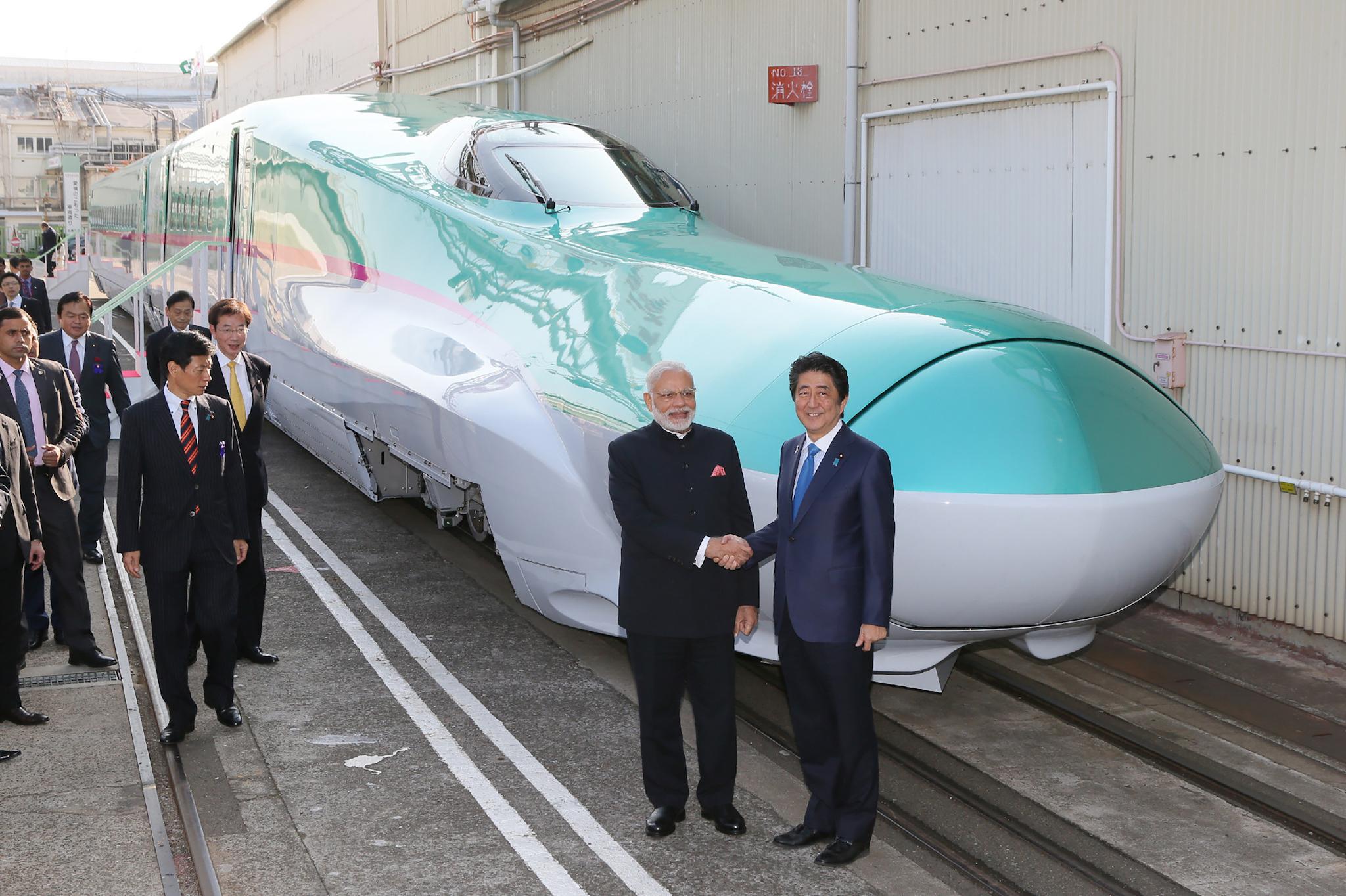India starts work on Japanese bullet train that will fire people across the country at incredible speed
The journey time will be cut from eight hours to three hours

Your support helps us to tell the story
From reproductive rights to climate change to Big Tech, The Independent is on the ground when the story is developing. Whether it's investigating the financials of Elon Musk's pro-Trump PAC or producing our latest documentary, 'The A Word', which shines a light on the American women fighting for reproductive rights, we know how important it is to parse out the facts from the messaging.
At such a critical moment in US history, we need reporters on the ground. Your donation allows us to keep sending journalists to speak to both sides of the story.
The Independent is trusted by Americans across the entire political spectrum. And unlike many other quality news outlets, we choose not to lock Americans out of our reporting and analysis with paywalls. We believe quality journalism should be available to everyone, paid for by those who can afford it.
Your support makes all the difference.India has started building a super-fast bullet train that will fire people across the country.
When it is finished in 2022, a journey will drop from eight hours to three hours.
Japan is helping to construct the high-speed train that will fire people the 310 miles between Ahmadabad, the main commercial city in Indian prime minister Narendra Modi's native state, to India's financial capital of Mumbai. As well as offering help and expertise, Japan has helped finance the project by lending money at a cheap rate to India.
That collaboration was reflected by the laying of a foundation stone by Mr Modi and and Japanese leader Shinzo Abe, commemorating an institute that will train about 4,000 people to actually make the high-speed train.
"My good friend Prime Minister Narendra Modi is a far-sighted leader. He took a decision two years ago to bring high-speed train in India and to create a new India," he said after work started on the new building. "I hope to enjoy the beautiful scenery of India through the windows of the bullet train when I come back here in a few years."
Analysts say building the high-speed train will give a boost to infrastructure development in India's fast-growing western industrial region, contribute to economic growth and decongest crowded cities.
"A strong India is in Japan's interest and a strong Japan is in India's interest," Mr Abe said soon after he and Mr Modi pressed a button at the foundation laying ceremony for the high-speed train.
Talks between Mr Modi and Mr Abe are expected to focus on security at a time when both countries share security concerns about a rising China.
The two countries will also announce progress on an Asia-Africa growth initiative to pool Indian and Japanese efforts to strengthen infrastructure in African countries.
Defence technology and cooperation in manufacture of military hardware, including a possible breakthrough on the US-2 amphibious aircraft, and technology cooperation on making unmanned ground vehicles and robots will also figure in Thursday's talks.
The two leaders are also likely to consider progress in a civilian nuclear cooperation agreement between India and Japan, which was ratified and came into force in July.
The countries are almost polar opposites. India's chaotic cities and its youthful population contrast starkly with Japan's orderly society, immaculate streets and mature economy. But those differences complement each other, and Abe and Modi repeatedly have emphasized shared interests and values.
Additional reporting by Associated Press
Join our commenting forum
Join thought-provoking conversations, follow other Independent readers and see their replies
Comments